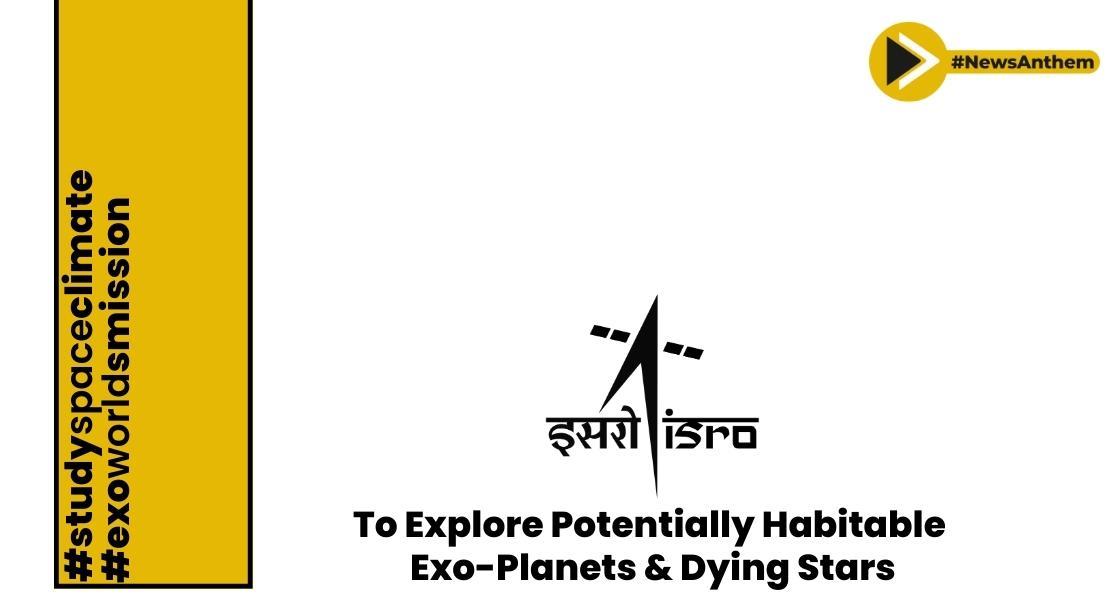ISRO to explore potentially habitable exo-planets and dying stars

News Synopsis
Following the triumph of its Moon mission, ISRO, the Indian Space Research Organisation, is charting a course towards unraveling the mysteries concealed within dying stars and exo-planets, some of which hold the promise of habitable atmospheres, shared ISRO Chairman S Somanath on Tuesday.
In a lecture organized by the Indian National Science Academy (INSA), Somanath outlined ISRO's ambitious ventures, including missions to study Venus, examine space climate, and even contemplate landing a spacecraft on Mars.
Unlocking the Mysteries:
"After the success of the Moon mission, ISRO has set sights on unlocking the mysteries of dying stars and exo-planets, some of which are known to have atmosphere and are considered habitable," stated S Somanath, emphasizing ISRO's relentless pursuit of cosmic exploration.
Future Endeavors of ISRO :
-
Venus Exploration: ISRO is gearing up for a mission dedicated to studying the enigmatic planet Venus. The peculiarities of Venus, including its dense atmosphere with an atmospheric pressure approximately 100 times higher than Earth's near its surface, pose intriguing questions that ISRO aims to answer.
-
Space Climate Study: Two satellites are in the pipeline to investigate space climate and its implications for Earth. Understanding the broader impact of space weather on our planet is a crucial aspect of ISRO's future research endeavors.
-
Mars Lander Mission: ISRO is in the conceptualization stage for a Mars Lander Mission, demonstrating the organization's commitment to pushing the boundaries of interplanetary exploration.
-
XPoSat Launch: Scheduled for a December launch, XPoSat (X-Ray Polarimeter Satellite) is set to study bright X-ray pulsars. These dying stars are nearing the end of their life cycle, and XPoSat aims to unlock insights into their cosmic phenomena.
-
ExoWorlds Mission: ISRO is conceiving the ExoWorlds mission, dedicated to exploring exo-solar planets beyond our solar system. With over 5,000 identified exoplanets, the mission aims to scrutinize the composition of their atmospheres, probing for signs conducive to life.
Crucial Significance of Venus:
Studying Venus is pivotal for several reasons, asserts Somanath. The planet's high atmospheric pressure and the mysterious composition of its atmosphere hold clues crucial to understanding the evolution of planetary bodies. This knowledge contributes to discerning the factors that render a celestial body habitable or uninhabitable.
Relevant and latest facts:
-
Exo-planets are planets that orbit stars other than our Sun.
-
Scientists believe that some exo-planets may be habitable, meaning that they could potentially support life.
-
ISRO is one of the few space agencies in the world that is actively developing missions to study exo-planets.
-
Venus is the second planet from the Sun and Earth's closest planetary neighbor.
-
Venus is a very hot and hostile planet, with surface temperatures reaching over 800 degrees Fahrenheit.
-
Venus has a very dense atmosphere, made up mostly of carbon dioxide.
-
ISRO is planning to launch a mission to Venus in the next few years to study its atmosphere and surface.
Conclusion:
ISRO's new initiatives to explore potentially habitable exo-planets, dying stars, Venus, and Mars are ambitious and exciting. These missions could lead to groundbreaking discoveries about our place in the universe and the possibility of life beyond Earth.
You May Like









